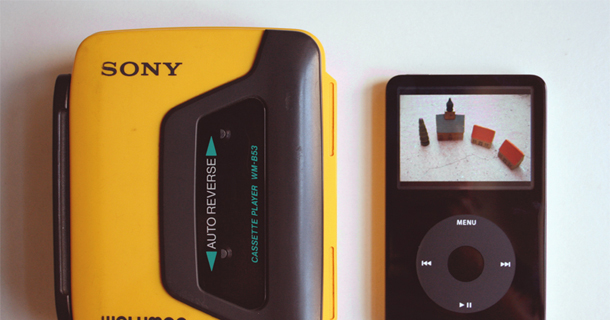
We’re rethinking many of the fundamentals on which our society is based: identity theft, privacy, employment background checks, freedom of speech, and the burden of proof. But the elder statesmen of the high courts aren’t keeping up.

We’re rethinking many of the fundamentals on which our society is based: identity theft, privacy, employment background checks, freedom of speech, and the burden of proof. But the elder statesmen of the high courts aren’t keeping up.
 In an effort to force users of its HTC Dream to do a software update that fixes a 911 call bug, Rogers has disconnected Internet from all its Android customers. Here’s the full text I just received on my phone:
In an effort to force users of its HTC Dream to do a software update that fixes a 911 call bug, Rogers has disconnected Internet from all its Android customers. Here’s the full text I just received on my phone:
Rogers/Fido Safety Message: URGENT Reminder 911 Calls HTC Dream software update: Mandatory software update is now available to help ensure 911 calls are completed from your phone. Please go immediately to rogers.com/dreamsoftwareupdate on your PC to download.
In order to help ensure 911 calls are completed internet access was temporarily disabled on your phone at 01/24/10 6:00AM EST. To reactivate internet service, please complete your software update immediately. Upon completion, internet access will be re enabled within 24 hours.
For users of Macintosh and Windows 7, please call 1- 888-764-3771(1-888-ROGERS1) for update instructions.
We apologize for the inconvenience but we prioritize customer safety above all.
Somewhere around 1999, I first saw a URL in a movie trailer. That confirmed for me that web technology had reached the mainstream. Clay Shirky points out that really interesting social capital applications emerge not when new technology is created, but when that technology is so mainstream as to be boring. He cites U.S. “citizen voter” applications designed to document suspicious voting practices, but is quick to emphasize that these were inspired by their low-tech predecessors in Africa.
Recently, I noticed something equally mainstream about a new class of technology: its appearance in movie and TV credits. As this screencap shows, the credits for @bbcgoodnews (which, I’m pretty sure, features @notrusshoward) include Twitter usernames.
Which got me thinking:
Read more »
 I’ve read a few books this summer that look at non-traditional economies. Chris Anderson‘s Free deals with “the future of a radical price”; Tara Hunt‘s The Whuffie Factor looks at the currency of reputation; and Clay Shirky‘s Here Comes Everybody talks about the power of self-organizing systems.
I’ve read a few books this summer that look at non-traditional economies. Chris Anderson‘s Free deals with “the future of a radical price”; Tara Hunt‘s The Whuffie Factor looks at the currency of reputation; and Clay Shirky‘s Here Comes Everybody talks about the power of self-organizing systems.
Chris and Tara’s books, at their core, deal with a single concept: that a connected society has three distinct economies — money, reputation, and attention — and that businesses depend on their ability to move value between the economies. And Clay’s book shows us that these economies can emerge by themselves without formal organization.
None of these economies are new. It’s just that in an online world, we have more ways of tracking them and understanding their exchange rates. Many of today’s most interesting companies are focused on exchanging value between the three economies, giving rise to many new business opportunities and forcing us to think with a “triple bottom line” mentality.

Apple’s increasingly restricting what consumers can do with their devices. Now those policies put the company in a battle for openness against the likes of Google.
It’s a competitive dilemma that comes from being in both the platform and the content business. And it’s one Apple should have handled better, because it’s the same mistake another company made that let Apple dominate the portable music market: Sony.
Maribel Lopez thinks mobility is like the start of A Tale of Two Cities: The best of times, in that never before have so many people been online and using digital services; and the worst of times, in that carriers don’t know what to do as their landline revenues plummet.
 As Maribel and I discussed the slides leading up to her presentation today, I remembered James Bond’s watch in The Spy Who Loved Me. It had a printer in it that spooled out a ribbon of text. This struck me as fascinating: The writers couldn’t have Bond carry a personal communicator, because that would be unrealistic to the 1970s audience. As a result, his cigarette case is a microfilm reader, and his shoebrush is a listening device.
As Maribel and I discussed the slides leading up to her presentation today, I remembered James Bond’s watch in The Spy Who Loved Me. It had a printer in it that spooled out a ribbon of text. This struck me as fascinating: The writers couldn’t have Bond carry a personal communicator, because that would be unrealistic to the 1970s audience. As a result, his cigarette case is a microfilm reader, and his shoebrush is a listening device.
More recent Bond films promise a grittier, meaner Bond, stripped of gadgetry (and, given that it’s Daniel Craig, often of shirt.) Truth be told, Bond has just as much technology. It’s simply wrapped up in his car, his computer, and his phone. What was once inconceivable is now commonplace. And Maribel did a great job of laying that out. Dick Tracy doesn’t need a watch, and Maxwell Smart doesn’t need a shoe phone. Mobility has made all of us secret agents.
Mobile by the numbers
How common is this technology? Look at the numbers. China Mobile adds 6.3 subscribers a month. India added 13 million in one month. Nokia sells over a million handsets a day. And there were 4 billion mobile subscribers in the world.
Read more »
Chris Anderson was first a physicist, then an editor for the Economist. Now he’s the editor of Wired. He also has some interesting hobbies, including a startup based around open source airborne drones. In other words, he’s uniquely qualified to talk about how “free” is transforming the software industry.
Opening up day 2 of the SIIA Software Summit, he presented some exerpts from the forthcoming book Free: The Future of a Radical Price (quite a lot of which is outlined in a series of Wired stories.) Chris was kind enough to give me an uncorrected proof a few weeks ago, and having read that, it’s clear this will be a juggernaut of a book. Free is a disruptive idea resulting from an economy where many of our marginal costs are falling to zero.
There are few places it disrupts more than the software industry, and Chris didn’t mince words with a roomful of industry executives: “The three technologies you guys depend on are becoming too cheap to meter.”